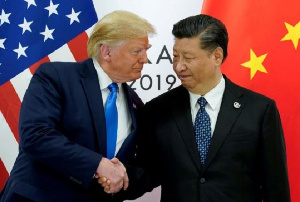How to Own a House in the U.S. as a Ghanaian: A Step-by-Step Guide

Owning a home in the United States is one of the most rewarding and secure financial decisions you can make—whether you’re a Ghanaian living in the U.S., an investor back home looking for property abroad, or someone seeking to build a future for your family. With rising rent prices and the long-term value of property ownership, more Ghanaians are asking: How can I own a house in America?
The good news is that you don’t have to be a U.S. citizen to buy a house. Whether you’re a permanent resident (green card holder), on a work or student visa, or even living in Ghana with interest in U.S. real estate, there are clear paths to homeownership. Here’s everything you need to know:
1. Understand the Legal Requirements
In the U.S., foreign nationals (including Ghanaians) are allowed to purchase property. You do not need citizenship or a green card. However, your immigration status may affect your ability to get financing (a mortgage loan).
What you need to qualify:
-
A valid passport or legal ID
-
A U.S. bank account
-
An Individual Taxpayer Identification Number (ITIN) or Social Security Number (SSN)
-
Proof of income (pay stubs, bank statements, or tax returns)
🔑 Tip: If you’re living in Ghana, you may need a U.S.-based legal representative or property manager to assist with the process.
2. Get Pre-Approved for a Mortgage (Optional)
If you plan to pay cash, the process is quicker and simpler. But if you’re like most people, you’ll need a home loan (mortgage).
To get a mortgage in the U.S., lenders will look at:
-
Your credit score (typically 620+ is needed)
-
Your debt-to-income ratio
-
Employment or income history (usually 2 years minimum)
-
Proof of legal stay (if you’re applying from inside the U.S.)
💡 Ghanaians living in the U.S. with steady jobs and good credit have a high chance of qualifying for FHA or conventional loans.
For Ghanaians living in Ghana, you can:
-
Partner with U.S. citizens or relatives for a joint purchase
-
Use international lenders who offer “foreign national loans” (usually with 30-50% down payment)
3. Choose Where You Want to Buy
Location is key. Consider these factors:
-
Where do you want to live or invest? (e.g., Texas, Ohio, Georgia, North Carolina)
-
What’s the average home price in that area?
-
Is it a growing market for rental or resale?
Some affordable U.S. cities where many Ghanaians own homes include:
-
Columbus, Ohio
-
Atlanta, Georgia
-
Houston and Dallas, Texas
-
Charlotte, North Carolina
4. Find a Real Estate Agent
It’s best to work with a licensed real estate agent—especially if it’s your first home or if you’re buying from Ghana. They help you:
-
Find homes within your budget
-
Make an offer and negotiate price
-
Understand the paperwork
-
Connect with trusted lenders, inspectors, and lawyers
📲 There are many Ghanaian-American agents who understand the culture and can guide you better.
5. Make an Offer and Sign a Purchase Agreement
Once you find a house, your agent will help you make a written offer. If the seller accepts, both parties sign a purchase agreement, which includes:
-
The agreed price
-
Closing date
-
Terms and conditions (e.g., inspections, financing, etc.)
6. Make Your Down Payment
In most cases, U.S. buyers put down:
-
3.5%–5% for FHA loans
-
10%–20% for conventional loans
-
30%–50% for foreign national loans (if applying from Ghana)
The higher your down payment, the lower your monthly mortgage and interest.
7. Do a Home Inspection and Appraisal
Before finalizing the deal, your agent will schedule:
-
A home inspection: To check the condition of the house
-
An appraisal: To make sure the home is worth the agreed price (especially if using a loan)
If issues come up, you can renegotiate or walk away without penalty.
8. Close the Deal and Get Your Keys
The final step is closing—signing the final paperwork, paying closing costs, and officially becoming the owner. This usually happens with a real estate lawyer or title company present.
After closing, you receive the deed, and the home is yours!
9. What If You Want to Buy From Ghana?
It’s possible to buy a house in the U.S. even if you’re in Ghana, by:
-
Hiring a trusted agent or family member in the U.S. to assist
-
Setting up a U.S. bank account
-
Applying for an ITIN number
-
Using foreign national mortgage options
-
Paying via international wire transfer
10. Why It’s Worth It
Owning a house in the U.S. offers:
-
Long-term financial security
-
Passive income if you rent it out
-
Legal protection of your property
-
Access to home equity loans in the future
For Ghanaians living in the U.S., it’s also a great step toward citizenship or long-term settlement.
Final Advice
Whether you live in Ghana or the U.S., buying a home is a big step, but with the right guidance, it’s achievable. Always:
-
Do your research
-
Work with trusted professionals
-
Save for your down payment early
-
Avoid fraud or unverified agents
If you need help finding Ghanaian real estate agents in the U.S. or lenders who work with foreigners, I can recommend a few based on your location or needs.





